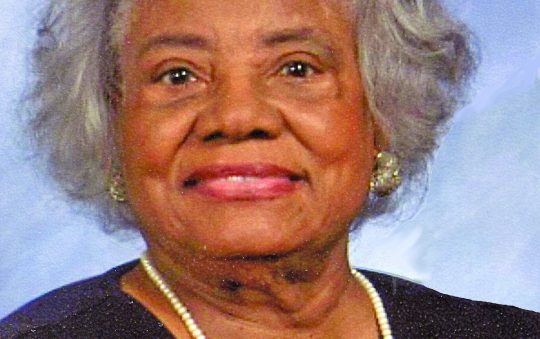
Proposition 2 would authorize the state to issue $10 billion in bonds with $8.5 billion dedicated to elementary and secondary educational facilities and $1.5 billion for community college facilities.
If approved, the proposition will make changes to the formula used to determine the amount each district is required to contribute to be eligible to receive state funding from the bond revenue. It would also
require the state government to cover between 50 and 55% of construction project costs and 60 and 65% of modernization project costs.
Supporters argue that the money is critical for making safety improvements in schools, as well as modernizing science labs, performing arts spaces and kindergarten classrooms. School districts in lower-income areas have no other way to pay for these improvements.
According to the Public Policy Institute of California, 38% of students attend schools that don’t meet the state’s minimum safety standards. The research shows that schools with sub-standard facilities tend to have students with lower attendance rates, lower morale and lower overall academic performance.
Related Links:
https://lasentinel.net/prop-3-aims-to-remove-same-sex-marriage-ban-from-california-constitution.html
California Black Media spoke with a Los Angeles Unified School District (LAUSD) spokesperson on why she believes it should be a YES vote on Prop 2.
“Los Angeles Unified has $80 billion in identified unfunded school facility needs and over 60% of its school buildings are over 50 years old. If Proposition 2 is approved by voters, LAUSD anticipates applying for and receiving between $600 million and $700 million,” the spokesperson said.
“Measure US, Los Angeles Unified’s Local Public Schools Safety and Upgrades Measure on the November ballot, would provide $9 billion to upgrade Los Angeles public schools for safety and 21st century student learning and college and career preparedness.
“The average annual cost to property owners is estimated at 2.5 cents per $100 of assessed (not market) property value. The Los Angeles Unified Board of Education adopted a Resolution on October 22 to support Los Angeles Unified’s Measure US, and State Propositions 2 and 4.”
Rebeca Andrade, superintendent of Salinas City Elementary District in Monterey County is also on record supporting Prop 2.
“This money is badly needed. We don’t have the money to make the basic, structural repairs that are needed at every one of our schools. Students need safe spaces to learn if they’re going to reach their full potential,” she said. Opponents argue that the state should include school repairs in its regular budget instead of putting the burden on taxpayers. Opponents also argue that the proposition would not directly impact students. The Howard Jarvis Taxpayers Association is on record as one of the organizations opposing the proposition.
“Proposition 2 is $10 billion of bonds, new state debt, to pay for school facilities. It is almost certain to result in higher property tax bills, because school districts must provide a ‘local match’ of funds in order to receive money from the Prop. 2 state bonds. That will lead to districts issuing new local school bonds, which are paid for by adding new charges to property tax bills,” said Jarvis.
Opponents also have voiced concerns about what they view as an inequitable distribution of funds. They believe that lower-income school districts should receive a greater share of the state’s sliding scale for matching funds.
“Enrollment is declining in both K-12 district schools and community colleges and the declines are projected to continue. But Proposition 2 commits California to pay an estimated $18 billion, including interest, for school buildings that may not even be necessary. Vote no on proposition 2.”
A “yes” vote gives approval to the state to issue $10 billion in bonds to fund construction and modernization of public education facilities.
A “no” vote will prohibit the state from issuing $10 billion in bonds to fund construction and modernization of public education facilities.






